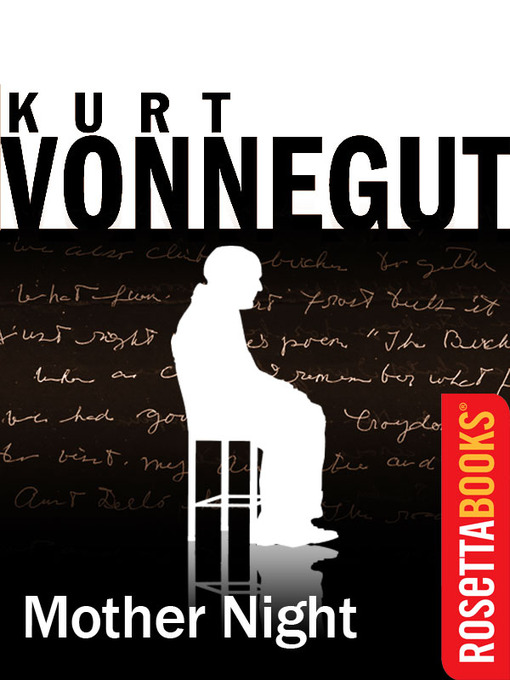Best known now by the 1996 Nick Nolte film of the same title, Mother Night (1961) is a dazzling narrative of false, shifting identity. The story tells of the odyssey of Howard Campbell, Jr., the book's protagonist, and is a paradigm of shifting loyalties, ambiguous commitment, and tales of personal compromise. Campbell is an American emigre in Germany at the time of Hitler's ascension; he is married to a German, his relations with the Nazi regime are excellent, and he agrees to spy for them and to become a broadcaster for the regime; but then, increasingly disaffected, Campbell becomes a double agent, then perhaps a triple agent, sending coded messages to the Allies.
After the War, he is tried for war crimes but is exonerated. The novel is written in memoir format from the point of view of the exiled Campbell, who, indifferent to outcome, plots suicide.
Here is a moral tale without a moral, or perhaps, according to Vonnegut, a tale with several morals. Vonnegut, a science fiction writer in his early career, knew the science fiction community very well, and it is more or less accepted that the conflicted and indecipherable Howard Campbell is modeled upon John W. Campbell, Jr. (1910-1971), the great editor of Astounding and Analog whose decades long rightward drift led him to endorse George Wallace in 1968.
ABOUT THE AUTHOR
Kurt Vonnegut (1922-2007) is one of the most beloved American writers of the twentieth century. Vonnegut's audience increased steadily since his first five pieces in the 1950s and grew from there. His 1968 novel Slaughterhouse-Five has become a canonic war novel with Joseph Heller's Catch-22 to form the truest and darkest of what came from World War II.
Vonnegut began his career as a science fiction writer, and his early novels—Player Piano and The Sirens of Titan—were categorized as such even as they appealed to an audience far beyond the reach of the category. In the 1960s, Vonnegut became closely associated with the Baby Boomer generation, a writer on that side, so to speak.
Now that Vonnegut's work has been studied as a large body of work, it has been more deeply understood and unified. There is a consistency to his satirical insight, humor and anger which makes his work so synergistic. It seems clear that the more of Vonnegut's work you read, the more it resonates and the more you wish to read. Scholars believe that Vonnegut's reputation (like Mark Twain's) will grow steadily through the decades as his work continues to increase in relevance and new connections are formed, new insights made.
ABOUT THE SERIES
Author Kurt Vonnegut is considered by most to be one of the most important writers of the twentieth century. His books Slaughterhouse-Five (named after Vonnegut's World War II POW experience) and Cat's Cradle are considered among his top works. RosettaBooks offers here a complete range of Vonnegut's work, including his first novel (Player Piano, 1952) for readers familiar with Vonnegut's work as well as newcomers.
